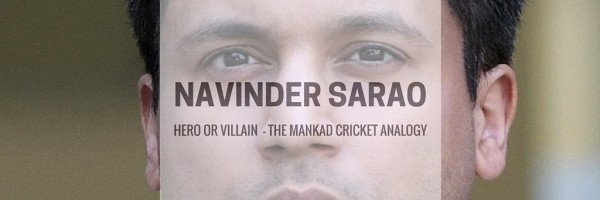Last week the Supreme Court in the case of R v Jogee [2016] UKSC 8 changed its position on the requirements of what must be proved when a defendant is accused of being a secondary party to a crime. There has been plenty of comment on its outcome but those who far more leaned than I, a good starting point by way of background on the issue is this Law Commission Report which is now ten years old. Suffice to say by way of general comment that this changes one of our more unjust laws which had until the judgement had been almost universally criticised across the world as a travesty of justice with no serious academic suggesting it to be fair. Despite this change coming I was in fact disappointed by the announcement as it pointed to some underlying issues with legal and political systems as well as society at large:
- The truth is that judges should not be changing the law, it should be the job of politicians, our elected representatives. For this reason the supreme court only rarely changes it position and it does not do so lightly . The job of the supreme court and the other courts underneath it is to create certainty. This judgement in pure legal terms is actually a bad one (albeit one that was right in my view). However it does point to successive governments who since the 1980’s have refused to correct this injustice in what would have been a fairly small piece of legislation and relatively easy to implement. Of course the reason politicians have refused to do so is that they have wanted to avoid being seen soft on crime and the flak that would arise from the long line of subsequent appeals on past convictions which would then occur. So to successive home secretaries, from both wings of our political system, shame on you.
- This was a change should have been made many years ago, it is a sad indictment of our system that it is only now that the change is being made. The criticism of this law has been wide and far in the legal world and yet for it only to be decided now in 2016 is actually not surprising. It takes a brave panel to do so in supreme court and it is actually very hard to get a case to the Supreme Court from the criminal side of our court of appeal which itself is a pretty hard tough nut to appear before and very wary of doing that might appear to upset the proverbial apple cart. The consequence of this is that a number of people have been locked up for life imprisonment with convictions for things they never intended, conceived or contemplated they would be involved in.
- Finally this is also a sad pointer to the capability of our society to realise that people make mistakes. I am not sure what it is about the British psyche but we do have a low tolerance for mistakes. We have a low tolerance for politicians, judges, business leaders, bankers (the list goes on) who simply get things wrong. Yet it is not mistakes we should be judged for but whether we learn from them. I am not saying we want courts to change their minds regularly but it would be helpful if politicians actually spent some time looking at fixing bad law rather than launching endless amounts of ‘new’ initiatives. Take that a step forward, rather than bringing wholesale change perhaps if we took the existing system, learnt from what was going wrong and looked at fixing those elements for a while.


